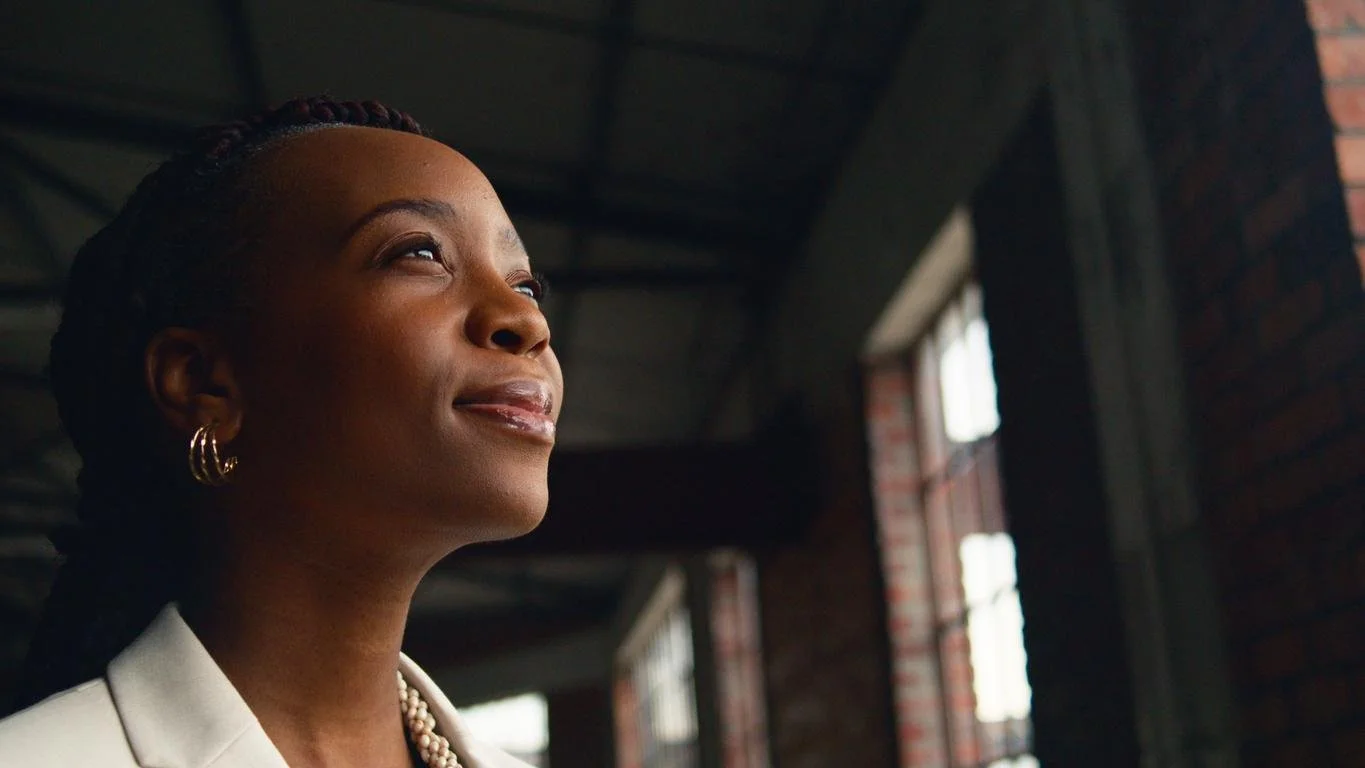When You Don’t Get What You Want: The Hidden Blessing in Disguise
Embrace life’s redirection as a path to greater opportunities by shifting your mindset from rejection to trust in the journey’s bigger picture. We discuss it here!
Photo Credit: Jacob Wackerhausen via iStockPhoto.com
By: Jamila Gomez
Life often has a way of throwing unexpected curveballs, especially when you’ve set your sights on something specific—a job, a relationship, a goal—and it doesn’t materialize. The disappointment can be overwhelming, leaving you questioning your worth or abilities. However, what if not getting what you want is the universe’s way of paving the path to something better?
The concept of “redirection, not rejection” offers a powerful shift in perspective. While it’s natural to feel crushed when things don’t go as planned, stepping back and trusting that the bigger picture holds unseen opportunities can be transformative. Often, the things we desperately chase may not align with our long-term happiness, even if they seem ideal in the moment.
The Wisdom of Letting Go
There’s an age-old saying: “When one door closes, another opens.” It’s easy to dismiss as a cliché when you’re grappling with disappointment, but countless stories prove its truth. Think about the times you didn’t get a job you thought you wanted, only to later land one that better aligned with your skills and passions. Or when a relationship ended, and later you found a partner who truly understood and supported you in ways you didn’t know were possible.
These experiences highlight that life often withholds what we want not as a punishment, but as protection. Perhaps that job would have been toxic, or that relationship would have held you back from becoming your best self. When you don’t get what you want, it’s often because there’s something better waiting, though you might not see it right away.
The Power of Trust
Trusting the process doesn’t mean passivity or blind faith. It means acknowledging that your current situation, no matter how painful, is part of a greater journey. Instead of focusing on what you’ve lost, ask yourself: What am I gaining instead? The answer might not be immediate, but in hindsight, the pieces often fall into place.
Consider Thomas Edison, who famously remarked, “I have not failed. I’ve just found 10,000 ways that won’t work.” Every “failure” in Edison’s quest to invent the lightbulb was a stepping stone to ultimate success. Similarly, when you’re denied something, it can propel you toward a path you never considered but one that’s far more fulfilling.
Moving Forward
The key is to remain open to possibilities. Don’t let disappointment cloud your ability to see opportunity. Life is dynamic, constantly changing, and often the things we think we want are merely stepping stones to something greater.
So, the next time you don’t get what you want, pause, breathe, and trust. The universe might be clearing the way for something extraordinary—something that will make you realize why your original plans didn’t work out.
YOU MAY ALSO BE INTERESTED IN:
SHARE TO SOCIAL MEDIA
Failure Isn’t a Full Stop: Keep Going
Failure is not the opposite of success but a stepping stone to growth, offering valuable lessons that pave the way for future achievements. We discuss it here!
Photo Credit: Meeko Media via iStockPhoto.com
By: Jamila Gomez
First things first: failure doesn’t define you. It’s not the period at the end of your story; it’s a comma. Messed up on a project at work? Got ghosted after putting yourself out there? Launched a side hustle that flopped? Cool. That just means you’re doing something. The people who never fail are the ones who never try.
The trick is to stop seeing failure as a reflection of your worth and start seeing it as part of the process. Every success story you’ve ever heard is full of “almost didn’t make it” moments.
The Lesson in the L
Here’s the secret sauce: failure is only a waste if you don’t learn from it. When something doesn’t work out, ask yourself why. Was it the approach? The timing? The effort? Take a hard look at what went wrong—not to beat yourself up, but to figure out how to move differently next time.
Think about it like this: every time you fail, you’re gathering data. That “bad” relationship taught you what you don’t want. That “lost” job showed you what kind of environment you thrive in. That “failed” business idea taught you a skill you’ll use in your next venture. The L isn’t a loss; it’s a lesson.
Keep It Moving
The key to failing forward is momentum. Don’t let fear of failure paralyze you. If something doesn’t work out, pivot and try again. Successful people aren’t the ones who never fail—they’re the ones who keep going, even after they fall flat on their face.
Picture this: you’re riding a bike. If you stop pedaling, you fall over. But if you keep moving, even at a slow pace, you stay balanced. Life works the same way. Keep pedaling, even when the road gets bumpy.
Failures That Built Legends
Need proof? Look at some of the greatest success stories:
• Michael Jordan didn’t make his high school varsity basketball team on his first try. Now he’s literally synonymous with greatness.
• Oprah Winfrey got fired from one of her first TV jobs. Fired. From a job in the very industry she went on to dominate.
• JK Rowling got rejected by 12 publishers before someone gave Harry Potter a shot. Now it’s a billion-dollar empire.
These people didn’t stop at failure. They learned from it, adjusted, and came back harder.
Rewrite Your Story
Failing forward means giving yourself grace. You’re going to mess up—it’s inevitable. But how you respond to failure is where the magic happens. You can either sit in the wreckage and throw a pity party, or you can sift through the rubble, grab the tools you need, and start rebuilding.
So, the next time you fall short, don’t get stuck. Get up. Look back, take the lesson, and keep stepping forward. Fail forward, and watch how those L’s start looking more like stepping stones.
Because here’s the truth: failure isn’t the opposite of success. It’s a part of it.
YOU MAY ALSO BE INTERESTED IN:
SHARE TO SOCIAL MEDIA
Things Fall Apart to Build Back Stronger: The Power of Breakdown and Rebirth
Embracing the cycles of falling apart and rebuilding stronger is key to personal growth, relationships, and societal progress, as breakdowns often precede transformation and renewal. We discuss it here!
Photo Credit: Jacob Wackerhausen via iStockPhoto.com
By: Jamila Gomez
In life, the notion that “things must fall apart in order to be built back stronger” is a theme that echoes in nature, relationships, careers, and even within ourselves. While the process of breakdown can be painful, it is often necessary for transformation, growth, and renewal. Just as seeds must break apart to grow into trees, or as bones that heal after breaking become more resilient, falling apart is a natural step in the cycle of life that allows for greater strength to emerge.
Nature’s Cycles: Destruction as a Precursor to Growth
Nature provides us with countless examples of how breaking down is an essential precursor to growth. Forest fires, for instance, are devastating in the short term, but they play a crucial role in revitalizing ecosystems. The heat of the fire releases nutrients stored in dead trees, allowing new vegetation to flourish. Similarly, volcanic eruptions, which seem to bring destruction, often result in new land formations that support vibrant new ecosystems. In each case, the destruction is not the end, but a necessary stage in the process of renewal.
This cyclical process teaches us that breakdown is not inherently negative. It is often a purging of the old to make room for the new, a reordering of things in a way that allows for something stronger, more sustainable, and more resilient to arise.
Personal Growth Through Breaking Down
Just as with natural systems, people too must go through periods of “falling apart” to emerge stronger. Emotional, psychological, and even physical breakdowns can mark the beginning of profound personal transformation.
When we face difficult moments in life—such as the loss of a job, the end of a relationship, or a health crisis—it can feel like our world is crumbling. But it is often in these moments of vulnerability and uncertainty that we discover inner reserves of strength we didn’t know existed. For instance, someone who has lost their job might initially feel devastated, but the experience can push them to explore passions or talents they had previously ignored, leading them to a more fulfilling career.
In this way, personal challenges force us to reevaluate our lives, shed old habits, and make room for new ways of thinking and living. It is through the cracks in our lives that light gets in, revealing deeper truths about ourselves and what we are capable of.
The Phoenix Metaphor: Rising From the Ashes
The metaphor of the phoenix—a mythical bird that is consumed by flames only to be reborn from its ashes—aptly symbolizes the way people and systems can rise from destruction. In many cultures, this image represents the idea that renewal and rebirth often follow periods of profound breakdown or loss.
In terms of personal growth, the phoenix metaphor reminds us that even when we feel as though we have reached rock bottom, there is an opportunity for renewal. When the familiar falls away, we are presented with a blank slate to build a new version of ourselves, one that is often more self-aware, compassionate, and resilient.
Relationships: Breaking Down to Build Better Connections
In relationships, whether romantic or platonic, breakdowns are often necessary to clear out dysfunctional patterns. Conflict can be painful, but it can also serve as a mirror, reflecting the parts of ourselves and our relationships that need healing or adjustment. Misunderstandings, disagreements, or even temporary separations may reveal underlying issues that, once addressed, can result in a deeper connection.
Relationships that never experience any form of breakdown can stagnate. Just like anything else in life, they require change and adaptation to survive. After weathering challenges, couples or friends often find that they understand each other better, communicate more openly, and emerge with a stronger bond.
Building Stronger Systems
On a larger scale, societal structures and institutions also benefit from breakdowns. Throughout history, revolutions, collapses, and crises have often been necessary to spark significant change. When outdated or oppressive systems fall apart, new opportunities for innovation and equity arise.
For example, the economic collapses that have occurred throughout history—though catastrophic at the time—have often led to reforms that create more sustainable and equitable economic systems. The fall of oppressive regimes has historically made way for more democratic or just governments to emerge. In these cases, the breakdown was not a sign of failure, but rather the first step in building something better.
Embracing the Process of Falling Apart
While it is human nature to fear breakdown, it is crucial to remember that it is part of a necessary process. Resistance to change or to the pain of falling apart only prolongs the process and stifles growth. Embracing the discomfort and uncertainty that comes with breakdowns allows us to move through them with more grace and resilience.
In moments of personal struggle, asking questions like “What can I learn from this?” or “How can this experience make me stronger?” shifts the focus from despair to opportunity. By seeing breakdowns as a natural part of life’s ebb and flow, we open ourselves to the possibility of transformation.
The concept of things falling apart before being built back stronger is one of the most fundamental truths in life. Whether in nature, in our personal lives, relationships, or societal systems, destruction and loss often precede growth, renewal, and a stronger foundation. Though the process can be painful and challenging, it is an essential part of transformation.
Just as trees grow back stronger after a fire, or as we emerge from personal crises with a deeper sense of purpose, breakdowns allow us to evolve into stronger versions of ourselves. By embracing the inevitable cycles of falling apart, we can rebuild with more resilience, wisdom, and strength than ever before.
YOU MAY ALSO BE INTERESTED IN:
SHARE TO SOCIAL MEDIA
Patience: The Art of Waiting Well
Discover how patience and faith work together to help you endure life’s waiting periods, fostering personal growth, resilience, and trust in the right timing. We discuss it here!
Photo Credit: skyNext via iStockPhoto.com
By: Jamila Gomez
Life often feels like a series of waiting rooms—waiting for success, for love, for healing, for answers. In a fast-paced world where instant gratification is the norm, practicing patience and maintaining faith can feel like a tall order. Yet, patience and faith are critical virtues when it comes to enduring life’s inevitable periods of uncertainty and delay. They are not just about waiting passively but about trusting that the right things will unfold at the right time.
Patience: The Art of Waiting Well
Patience is more than the ability to wait; it is the ability to maintain peace and composure during that wait. It is a conscious decision to not let frustration or anxiety take over when life doesn’t move at the pace you want. While the world increasingly encourages us to rush, demanding immediate results and constant forward momentum, patience teaches us that good things often take time to come to fruition.
One of the reasons patience is essential is that it allows time for growth. Just like a seed needs time to grow into a plant, many of the best things in life—whether they be relationships, career success, or personal development—require time and nurturing to mature fully. Rushing through life often results in shortcuts that may offer short-term gratification but fail to provide long-lasting fulfillment. Patience, in contrast, enables us to fully experience the process and become more resilient, wise, and grateful as we wait.
Additionally, patience guards us against making hasty decisions out of fear or impatience. It can be tempting to settle for something less than we deserve when the waiting feels too hard, but those who exercise patience are less likely to compromise on their values, dreams, or standards. They understand that some things take longer to materialize because they are worth waiting for.
Faith: Trusting the Process
While patience helps us endure the wait, faith gives us the strength to believe that the wait is worthwhile. Faith is trusting that good things are on the horizon even when there is no visible evidence to support that belief. It’s the quiet assurance that there is a purpose to the waiting period, even when we cannot see what it is.
Faith helps to counteract the feelings of doubt and fear that can arise during long periods of waiting. It’s easy to feel anxious when things don’t seem to be progressing, or to lose hope when you don’t get the job, the relationship, or the breakthrough you’ve been hoping for. In those moments, faith reminds us that there is a bigger picture at work, one that we may not fully understand but can trust is for our benefit.
This trust doesn’t mean being passive or doing nothing while we wait. On the contrary, faith encourages us to continue putting in effort, believing that our hard work will eventually bear fruit. For instance, someone looking for a job needs both patience and faith. Patience helps them endure the application process without losing hope, while faith reminds them that the right opportunity is out there, even if it hasn’t materialized yet.
The Synergy of Patience and Faith
Patience and faith are complementary virtues that work hand-in-hand to guide us through life’s challenges. Without faith, patience can feel like mere endurance, a passive waiting that lacks hope. Without patience, faith can lead to frustration and despair, especially when things don’t happen as quickly as we expect. Together, they create a powerful mindset that keeps us grounded and optimistic, no matter the circumstances.
When you combine patience and faith, you cultivate an inner strength that allows you to face uncertainty with calm assurance. This combination also fosters gratitude because it shifts the focus from what is missing to what is present. Instead of constantly striving for more, you begin to appreciate the journey, finding peace in the process of becoming rather than just in the outcome.
The most rewarding things in life often take time, and patience and faith are the keys to waiting well. They help us trust in the timing of life and in the goodness that is yet to come, even when the future is uncertain. By embracing these virtues, we allow ourselves the grace to enjoy the journey, knowing that the destination—no matter how long it takes to arrive—will be worth the wait.
In the end, patience and faith are not just about waiting for good things to happen; they are about becoming the kind of person who can receive and appreciate those good things when they finally do arrive.
YOU MAY ALSO BE INTERESTED IN:
SHARE TO SOCIAL MEDIA
Life Is A Gift: The Importance of Appreciating Life
Learn how practicing gratitude, mindfulness, and intentional living can help you stop taking life for granted and embrace every moment. We discuss it here!
Photo Credit: petrenkod via iStockPhoto.com
By: Jamila Gomez
Life is fleeting. We often get so caught up in daily routines, future goals, or past regrets that we lose sight of the precious moments happening right now. Yet, life is a delicate balance of time, experiences, and relationships — all of which can be taken away without warning. Recognizing the impermanence of life and living with intention are not only important but transformative.
The Fragility of Life
It’s easy to assume that we have time — time to achieve our goals, reconnect with people, or travel to the places we've always dreamed of. However, the truth is that life is unpredictable. A sudden health scare, an accident, or a change in circumstances can remind us of how quickly everything can change. When we take life for granted, we lose appreciation for the present, assuming tomorrow will always come, when in fact, it’s never promised.
If you've ever experienced a sudden loss or witnessed someone face a life-altering event, you've likely felt the sharp reminder of life’s fragility. These moments make us pause, reflect, and often realize that we’ve been rushing through life without truly living.
Why Gratitude is Key
The antidote to taking life for granted is gratitude. By fostering gratitude, we shift our focus from what we lack or desire to what we already have. It encourages mindfulness and appreciation for the simple things — the laughter of loved ones, the warmth of the sun, the joy of a meal shared with friends. Gratitude transforms the ordinary into extraordinary.
Scientific studies have shown that practicing gratitude can improve mental and physical health, increase happiness, and even lengthen life expectancy. When you acknowledge what you're grateful for, you start living more fully, engaging in life with a deeper sense of purpose and contentment.
The Role of Mindfulness
Mindfulness, or the practice of being fully present, is another powerful tool to counter taking life for granted. How many times do we find ourselves caught up in a cycle of “I’ll be happy when…” thoughts? Whether it's the next promotion, a bigger home, or a vacation, these milestones are often tied to an elusive sense of future happiness.
But life isn’t a series of “when I get there” moments. It’s happening right now, in this breath, in this moment. Mindfulness allows us to experience the richness of the present, recognizing that joy, peace, and fulfillment aren’t found in the next big achievement, but in the quiet, everyday moments we so often overlook.
Strengthening Relationships
One of the greatest areas where we tend to take things for granted is in our relationships. We assume the people in our lives — our family, friends, and partners — will always be there, forgetting to appreciate their presence and the joy they bring us.
Taking the time to connect, to truly listen, and to show appreciation to the people who matter most is one of the greatest gifts we can give. It strengthens bonds, creates lasting memories, and fosters deeper understanding. When we neglect these relationships or treat them as an afterthought, we risk losing them, often realizing their importance only after it’s too late.
Living with Intention
Living with intention means actively making choices that align with your values and priorities. It’s about being purposeful with your time, energy, and actions. This doesn’t mean striving for perfection, but rather, seeking balance and making space for what truly matters.
Do you want to travel more? Make time for it. Do you wish to spend more time with loved ones? Don’t wait for the “perfect” moment. Do you want to make a difference? Start today. When we live with intention, we avoid the regret of missed opportunities and unlived dreams.
Cherishing Life’s Imperfections
It’s important to remember that life is not perfect, and neither are we. The beauty of life often lies in its imperfections — in the unexpected twists and turns, the challenges that shape us, and the lessons we learn along the way. Taking life for granted often stems from a desire for it to go exactly as planned. But the real joy comes from embracing the unpredictable, accepting the ups and downs, and seeing every moment as an opportunity to grow.
Not taking life for granted means cultivating an attitude of gratitude, living with mindfulness, and nurturing relationships that matter. It means embracing the present moment, acknowledging the preciousness of time, and living with a sense of purpose and intention. Life is a gift, and while it’s easy to forget amidst the hustle and bustle, we owe it to ourselves — and to those around us — to cherish it fully.
Don’t wait for a wake-up call to remind you of life’s impermanence. Appreciate it today. Let go of unnecessary distractions, hold your loved ones close, and live as though each day truly counts — because, in reality, it does.
YOU MAY ALSO BE INTERESTED IN:
SHARE TO SOCIAL MEDIA
The Power of Learning from Past Mistakes
Embrace your mistakes as essential steps toward growth by reflecting on their lessons, building resilience, and moving forward with renewed purpose and courage. We discuss it here!
Photo Credit: LeoPatrizi via iStockPhoto.com
By: Jamila Gomez
Mistakes. We all make them, sometimes daily. They’re those moments that can make us cringe, feel embarrassed, or wish we could hit the rewind button on life. But what if we reframed how we view our mistakes? What if, instead of seeing them as failures, we began to see them as stepping stones to success, as essential ingredients in the recipe for growth?
The Gift of Reflection
One of the most powerful tools we have as human beings is the ability to reflect. When we take the time to look back at our past mistakes, we’re engaging in an act of self-awareness that is crucial for personal development. Reflection isn’t about wallowing in regret; it’s about extracting wisdom from our experiences.
Think about a time when you made a mistake. Maybe you spoke out of turn in a meeting, made a poor financial decision, or let someone down. Initially, it might feel painful to revisit those moments. However, in that pain lies a lesson. What did you learn about yourself? What would you do differently next time? These questions are the key to transforming a mistake into a learning opportunity.
Mistakes as Teachers
It’s easy to label a mistake as a failure, but what if we started to see mistakes as our greatest teachers? Life doesn’t come with a manual, and the only way to navigate it is through trial and error. Each mistake we make teaches us something invaluable—whether it’s about the world, other people, or most importantly, ourselves.
Consider the mistakes of great inventors, entrepreneurs, and leaders throughout history. Thomas Edison is famously quoted as saying, “I have not failed. I’ve just found 10,000 ways that won’t work.” His perspective is a testament to the power of perseverance and learning. Every “failed” attempt brought him one step closer to success. By embracing mistakes as lessons, Edison was able to invent the lightbulb, forever changing the world.
Building Resilience
Learning from mistakes is not just about gaining knowledge; it’s also about building resilience. Each time we bounce back from a mistake, we strengthen our ability to cope with challenges. Resilience is like a muscle—the more we use it, the stronger it becomes. When we learn to navigate the discomfort of making mistakes, we equip ourselves with the mental and emotional tools needed to face future obstacles with confidence.
Moreover, embracing mistakes as part of the learning process can lead to a more compassionate relationship with ourselves. Instead of harsh self-criticism, we can approach our past missteps with kindness, understanding that making mistakes is a natural part of being human. This shift in perspective allows us to move forward without the weight of guilt or shame, opening the door to self-growth.
Moving Forward with Purpose
The key to truly learning from past mistakes is to use those lessons to inform our future actions. Mistakes should not define us but rather guide us. When we understand where we went wrong and how we can improve, we gain clarity and direction for our journey ahead.
To do this, it’s essential to set intentions for how we want to move forward. What did your mistake teach you, and how will you apply that lesson in the future? By setting specific goals and intentions, we transform our mistakes into catalysts for positive change.
For instance, if a past mistake taught you the importance of time management, you might set a goal to prioritize your tasks more effectively. If you learned the value of patience from a mistake, you might commit to practicing mindfulness in moments of stress. These actions turn lessons into habits, ensuring that our mistakes contribute to our ongoing personal growth.
The Courage to Try Again
Perhaps the most significant lesson that mistakes teach us is the courage to try again. Fear of failure can be paralyzing, but when we’ve already faced and learned from our mistakes, we become less afraid of the unknown. We understand that mistakes are not the end of the road but merely a detour. Armed with this knowledge, we can approach new challenges with confidence, knowing that even if we stumble, we will rise again, stronger and wiser.
Mistakes are an inevitable part of life, but they don’t have to be a source of regret. By embracing reflection, seeing mistakes as teachers, building resilience, moving forward with purpose, and summoning the courage to try again, we can transform our past mistakes into powerful tools for growth. So, the next time you find yourself wishing you could go back and undo a mistake, remember that every misstep is an opportunity to learn, grow, and become the best version of yourself. After all, it’s not our mistakes that define us, but how we rise after falling.
YOU MAY ALSO BE INTERESTED IN:
SHARE TO SOCIAL MEDIA
7 Tips to Get Your Mind on Your Side
Building self-belief is essential for achieving your dreams and overcoming self-doubt, empowering you to reach your full potential and live authentically. We discuss it here!
Photo Credit: Ridofranz via iStockPhoto.com
By: Jamila Gomez
Self-belief isn’t optional. It’s vital. Think of all the things you haven’t accomplished or tried because you didn’t have enough belief in yourself. Self-doubt will always creep in at times. That’s why it’s so important to have an excess of belief in yourself.
Create a reserve of self-belief and you really can accomplish nearly anything you can imagine. What would you do if you believed you could do essentially anything? How would your life be different? How would you feel?
If you need a little more faith in yourself, try hese tips:
Examine your beliefs. You weren’t born with any limiting beliefs. You learned every single one of them. We all learn to limit ourselves unfairly. Give yourself the credit you deserve. Think about the limiting beliefs you already have. Do what you can to discard them. Ask yourself if this limiting belief is really legitimate. Where did it come from? What evidence do you have that it simply isn’t true?
Give yourself an unlimited number of opportunities to be successful. It’s easy to be filled with doubt if you think you only have once chance to get it right. Give yourself permission to “fail” as many times as necessary. Learn something from each attempt. This is a great way to build self-belief.
Eliminate self-criticism. As soon as self-doubt starts to invade your thoughts, ask yourself where that inner critic is coming from. Are you channeling a negative experience from the past? Is the source of this criticism credible? It rarely is. It can be challenging to quiet your mind, but that doesn’t mean you have to let it drag you down. Focus on positive self-talk.
Trust and love yourself. For one month, try being your best friend instead of your worst enemy. How do you treat your best friend or your children? Probably a lot better than you treat yourself. Give yourself the gift of kindness.
Coach yourself. Everyone needs a little support and encouragement. So when you find yourself struggling, consider what you would say to someone that you really believed in if they were feeling the same way you are. When self-doubt starts to creep in, take a few minutes to coach yourself.
Think about how you would like to act. Think about how you would think and behave if you were full of self-confidence. You can effectively borrow traits from others, too. Who are some of your heroes? Sometimes it easier to imagine others dealing with a situation than to imagine ourselves. See yourself acting the way your hero would act.
Remember all your past victories. We’ve all accomplished some pretty impressive things, but we’re quick to forget them. Grab a pen and some paper and list all the successes you’ve experienced in life, no matter how great or small. If you need help, ask a trusted friend or family member. You might be surprised at what you hear.
Self-belief isn’t about becoming arrogant or turning a blind-eye to one’s flaws. The belief you have in yourself needs to be focused on what you wish to become. You can have weaknesses. Everyone does. But there is value in being relaxed about your weaknesses and working to strengthen them.
A strong belief in yourself is a sure ticket to living authentically. You can make it easier to believe in yourself by learning to love yourself inside and out – mind, body, and soul.
YOU MAY ALSO BE INTERESTED IN:
SHARE TO SOCIAL MEDIA
The Flaw of Comparing Yourself to Others
Overcome the self-defeating habit of comparing yourself to others by focusing on personal growth and self-improvement to achieve true contentment and joy. We discuss it here!
Photo Credit: PeopleImages via iStockPhoto.com
By: Jamila Gomez
If you’re lacking contentment, it could be because you’re comparing yourself to others. You’ve been on Facebook and seen the pictures of other people living their seemingly exciting lives. It only takes a moment to find yourself wishing you had someone else’s career, body, house, or vacation. Comparing ourselves to others is a common activity.
But there’s a critical flaw in this mental exercise. You simply don’t have all the information. Someone might have a great body, but they might be seriously ill. That great vacation might have been paid for with an inheritance after a family member passed away.
A smarter strategy is to compare yourself to your own recent past. How is your figure compared to 6 months ago? How are your finances compared to last year? If you’re making progress, congratulate yourself. Most people aren’t doing nearly as well. They’ve weighed the same 210 lbs. and had the same $1,200 in their bank account for the last 20 years.
If your life isn’t moving forward, then you ought to take a pause and address the situation.
Theodore Roosevelt once said, “Comparison is the thief of joy.” Think about that statement and decide if it rings true for you.
Check out a few more tips that can free you from unnecessary comparisons:
Catch yourself early in the process. As soon as you realize that you’re making comparisons to others, shift your focus to something else. You can control your thoughts, so use that ability to your advantage.
Remember that the journey is what matters. Everyone is on a journey to learn, create, and become something unique. It’s an individual experience that isn’t impacted by what others are doing or accomplishing.
Comparing yourself to others is a game that can’t be won. There are a lot of people in the world. Through sheer statistics, there will constantly be someone with a more attractive spouse, more money, a better car, or a more interesting life.There’s no way to compete with 8 billion people in every facet of life.
Look to your strengths. Comparisons tend to focus on our weaknesses. We usually compare our shortcomings against others. Embrace your strengths and be proud. Now use those strengths to your advantage.
List the things you have. Comparisons highlight the things we lack. It’s much more productive to think about the things you do have. Your mood and frame of mind will be better, and you’ll be in a better position to compete and succeed.
People only let you see the things that want you to see. Sure, they’ll let you see their new BMW and the vacation pictures from Maui. But you’ll never see the tears and fights in the bedroom, or the verbal abuse they take from their mother-in-law. Keep in mind that social media is primarily used for showing the good, rather than telling the bad.
It’s just a habit. Our lives are filled with habits, and some of them are harmful. Poor mental habits are restrictive. It’s like going through life with the emergency brake on. Labeling the tendency to compare as a habit has a powerful advantage because we know that habits can be broken.
Comparing yourself to others is limiting and self-defeating. No one can be expected to compare favorably to the vast number of people in the world. Make an effort to limit your comparisons to your own recent past. Are you making progress or backsliding? If you continue to enhance the important areas, your life is likely to be fulfilling and exciting!
YOU MAY ALSO BE INTERESTED IN:
SHARE TO SOCIAL MEDIA
Boost Your Motivation: Strategies to Overcome Procrastination and Achieve Your Goals
Learn powerful strategies to enhance your motivation, overcome procrastination, and successfully achieve your goals with actionable insights. We discuss it here!
Photo Credit: Delmaine Donson via iStockPhoto.com
By: Jamila Gomez
What does it take to motivate yourself? You set goals, make plans, get excited, but then procrastinate when it comes time to do something. Many of us are cursed with the ability to feel good about the planning process, but awful about acting on those plans. There’s a disconnect that few people understand how to address.
Master this ability and you can do anything. However, if your ability to tie your planning and action phases together is poor, you’ll struggle immensely.
Enhance your motivation and your results with these strategies:
Give your attention to those things under your control. You can’t control much, but there’s no reason to focus on anything else. Doing so will only lead to feeling overwhelmed. For example, receiving a promotion isn’t under your control. The behaviors that improve your odds are under your control.
Put your time, energy, and attention on the things you can manipulate. Avoid wasting your resources on anything you can’t influence.
Find a purpose that inspires you. Going into work on Saturday to complete a report might sound like the least enjoyable way to spend part of your weekend, but if excelling at your job could lead to the promotion you’ve been dreaming of, it’s easier to be motivated.
Most people don’t like to work out, but the prospect of being healthier and more attractive is motivating to many people.
Avoid judging the task or activity in the short-term. Think about what you’ll get out of it down the road. Find a way to take inspired action.
Your inspiration might be a product of what you’re doing for others. How does your goal benefit others?
Focus on small wins. If your goal is to lose 50 pounds over the next year, it’s easy to become burned out. After two hard weeks of hitting the gym, avoiding late night snacks, and drinking only water, you’ve lost a total of two pounds. You’re right on schedule, but you realize that you have 48 weeks and 48 pounds to go. It seems like too much to bear.
Break the goal up into smaller pieces. Depending on your ability to focus, it might be necessary to break up the goal into segments that last anywhere from one week to 12 weeks. This way your brain can experience success and logically see a positive long-term outcome. You’ll procrastinate if the path looks too challenging.
Act first. It’s a mistake to wait for motivation to strike. You might find yourself waiting for a long time. Avoid thinking too much about the work to be done. If you wait too long to get started, procrastination becomes more likely. Before you can stop yourself, get started. You’ll find that motivation is easier to experience after you’ve acted.
Every minute you wait under the guise of “planning” or “strategizing” saps what little motivation you may already have. Jump up and get busy!
Enhance your mood. It’s much harder to be motivated when you’re in a bad mood. Studies have shown that a negative mood increases procrastination behaviors.
Procrastination enhances your mood in the short-term, but at the expense of the future. Put yourself into a better mental state and procrastination becomes less likely to occur.
Happiness increases productivity and success. Monitor your progress. Research suggests that nothing is more motivating than progress in a meaningful endeavor.
Without motivation, you can make spectacular goals and plans and still come up short. The smallest obstacle could stop you. Learning to manage your motivation is a key component of effectively handling challenges and moving on to accomplish great things. Motivate yourself and you can do anything!
YOU MAY ALSO BE INTERESTED IN:
SHARE TO SOCIAL MEDIA
Strategies to Keep Going When You Feel Like Quitting
Learn effective strategies to overcome the urge to quit and maintain progress towards your goals, even when faced with challenges. We discuss it here!
Photo Credit: insta_photos via iStockPhoto.com
By: Jamila Gomez
The most successful people have an uncanny ability to keep going when everyone else would quit. Your success is tied to your ability to keep working after you have the urge to quit. Quitting is a negative habit, and it’s often learned at a young age. Learn how to continue making progress no matter how strong the urge to quit grows.
Consider the reasons you feel like quitting in the first place:
You lack energy. A lack of energy isn’t just a reason one might quit a marathon. It’s also a common reason for quitting other pursuits. Exhaustion can be physical or mental. To help counteract your exhaustion:
Get a full night of sleep.
Get better control over your schedule.
Streamline your life.
Eat more nutritious foods.
Learn how to relax.
You lack focus. Too many distractions can result in the desire to quit. Are you trying to accomplish too many other things? Some people can deal with more goals than others. If you feel overwhelmed, narrow your focus to your most important goals.
It’s not that important to you. Do you have a good enough reason to keep going? Why are you doing this activity in the first place?
Remind yourself of why it’s important to keep going. Maybe the best motivation you can find is setting a good example for your children. Maybe the most important issue is self-respect. Find a good reason to continue.
Understand the reasons you feel the desire to quit. Whether it’s a bad job or a horrible diet, there are times we all consider quitting. However, quitting isn’t always an adverse choice.
We’ve been taught to believe that quitting is synonymous with failure, but some activities or relationships aren’t worth continuing. It’s important to arrive at a decision to quit or continue consciously, rather than making a reflexive decision.
Try these techniques to avoid quitting prematurely:
Hit the pause button. Most poor decisions could be avoided by taking a short pause. When you’re stressed, overworked, overtired, and fed-up, rash decisions become the norm. Give yourself the time you need to make a wise decision. Allow your head to clear before you make a decision that changes your life. Most decisions can wait.
View the situation objectively. Try to be objective and weigh the situation carefully. Enlist the help of a friend if necessary. It can be easier to evaluate someone else’s situation accurately than your own.
Consider the worst-case scenario. Think long-term. Quitting is an easy choice when you only consider the short-term ramifications. You can relieve your stress almost immediately! However, what are the long-term consequences? If you quit your job, what will happen if you can’t find another one?
Reconsider quitting if the long-term consequences are too severe. A little relief now isn’t worth long-term pain.
Who will be impacted by your quitting? Your boss? Coworkers? Family? The members of your church softball team? Who is affected?
What message are you sending to your children? What would you recommend to a child in a similar circumstance? Your children are always watching. Be sure to set a good example.
Ask yourself if a new approach is warranted. Maybe you shouldn’t quit. Maybe you need a new plan. Not getting the results you desire isn’t necessarily a sign that you should call it quits. Poor results indicate an ineffective process. Perhaps all you need is a tweak to your approach. Major accomplishments are accompanied by numerous failed attempts.
Ask yourself why you’re considering quitting. Is it because you don’t believe you can be successful? You don’t have the resources you require? Do you not enjoy the job, activity, or relationship in question? Are you lacking the necessary time?
Some reasons for quitting are better than others. Quitting a second job you don’t need so you can spend more time with your children is a good reason to quit. Ending your marriage because your spouse won’t pick up his dirty socks might be a bit extreme.
Is there another solution besides quitting?
Consider the times you’ve given up in the past. How do you feel about those events today? Was quitting a good idea or do you regret it? How are you likely to feel in the future about quitting in your current situation? Sometimes it’s necessary to lower your head and keep going. There are times when quitting is the best choice. However, when it’s not the best choice, it’s necessary to be strong and keep going. Stick with that horrible job until you have something else lined up. Give counseling a try before quitting on another relationship.
Take a moment before making a hasty decision. Quitting isn’t to be taken lightly. Before making the decision to quit, consider the consequences, consult with a trusted friend, and consider your history. In some instances, quitting is final. Avoid creating long-term challenges to alleviate stress in the short-term. Give yourself the time you require to make a wise decision.























